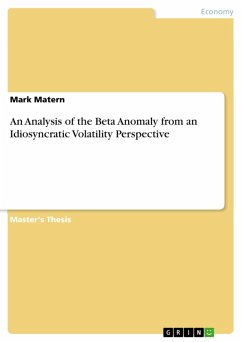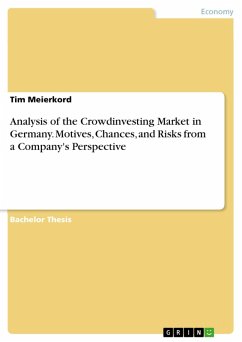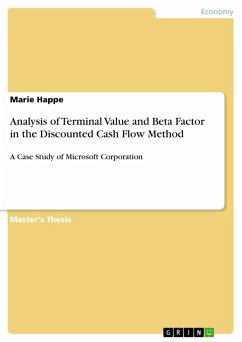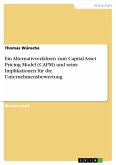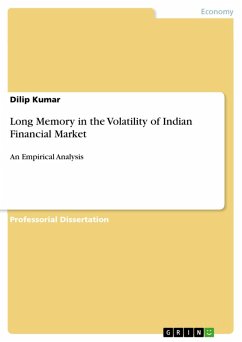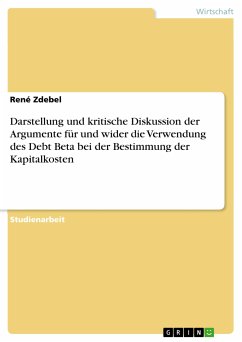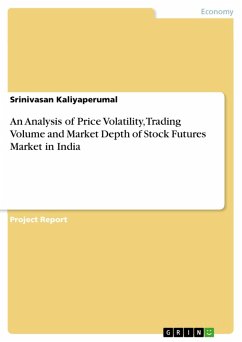Master's Thesis from the year 2017 in the subject Business economics - Investment and Finance, grade: 1,7, University of Mannheim, language: English, abstract: The foundation of this contribution will be the verification of the empirical results presented by Liu et al. (2017). We will start by summarizing their findings and explanations in Chapter 2 (Theoretical Background) and build the theoretical foundation upon which the empirical interpretation will rest. We actually view the compilation of the theoretical explanations in an intuitive line of reasoning as our first valuable contribution for our readers, as an understanding of the topic is not as easily to grasp after a first consultation of the papers. In Chapter 3 (Empirical Results) we address the actual calculations and most important summary statistics that will either speak in support or against our interpretations. In 3.1 (Data and Methodology), we present our dataset important technical notes and in Chapter 3.2 (The Beta Anomaly) we summarize and try to replicate the empirical findings of Liu et al. (2017), which will serve as the bedrock of interpretations we will arrive at in following pages. In Chapter 3.3 (Betting-against-Correlation) and its sub-sections on leverage, size and sentiment, we turn our attention to a paper by Asness et al. (2017) which contributed and responded to the findings of Liu et al. (2017), but with often diametrically contradicting views. The reference date of 2017 suggests that both papers belong to a highly new set of research and we believe that by covering those two and adding our own findings we can add significant clarity to actually understand what is going in the space of the beta anomaly. In Chapter 3.4 (BAB vs. BAI), we finalise the empirical analysis by contrasting opposing views on strategies that are designed to exploit the low-beta anomaly and realign the findings that we came across. We will summarize the newly gained insights for our readers in our last Chapter 4.
Dieser Download kann aus rechtlichen Gründen nur mit Rechnungsadresse in A, B, BG, CY, CZ, D, DK, EW, E, FIN, F, GR, HR, H, IRL, I, LT, L, LR, M, NL, PL, P, R, S, SLO, SK ausgeliefert werden.

